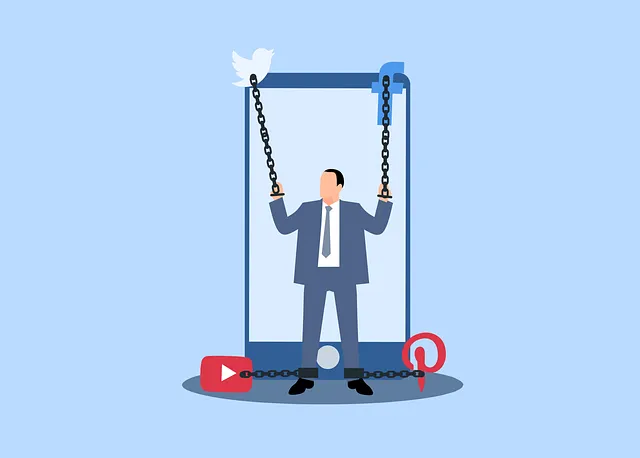Stress management workshops in Littleton, facilitated by partners like Kaiser, offer valuable tools for improving mental well-being. These sessions, focusing on mind-body connection and Mind Over Matter principles, provide tailored coping mechanisms. By addressing cultural sensitivity and diverse needs, these workshops promote mental health awareness, empower individuals to manage stress, and have broader societal impacts, encouraging help-seeking behaviors. Through structured activities like mindfulness exercises and case studies, they enhance resilience against life challenges, accessible to all community members in Littleton looking for mental health help.
In today’s fast-paced world, stress management is crucial for overall well-being. This article explores how stress workshops can empower Littleton residents to combat stress effectively. We delve into the profound impact and underlying causes of stress, highlighting its effect on mental health. Subsequently, we provide a step-by-step guide on organizing such workshops, focusing on accessibility. For those seeking professional support in Littleton, connecting with Kaiser for mental health services is discussed as a valuable resource.
- Understanding Stress: Unveiling the Impact and Causes
- The Role of Workshops in Promoting Mental Health Awareness
- Organizing Effective Stress Management Workshops: A Step-by-Step Guide
- Accessing Resources: Connecting Littleton Residents with Kaiser for Mental Health Support
Understanding Stress: Unveiling the Impact and Causes

Stress is a ubiquitous part of modern life, yet its impact on our mental and physical health can be profound. Understanding stress involves recognizing both its triggers and effects. In Littleton, where access to mental health resources like those offered by Kaiser is readily available, workshops focused on stress management are valuable tools for empowering individuals. These sessions often delve into the mind-body connection, exploring how our thoughts and emotions influence our stress response. By teaching participants Mind Over Matter Principles, these workshops equip them with coping mechanisms tailored to their unique experiences.
Beyond individual factors, cultural sensitivity in mental healthcare practice is crucial. Recognizing that stress can be shaped by cultural norms and backgrounds helps create inclusive environments where everyone feels heard and understood. This is especially relevant when addressing issues like depression prevention, as certain communities may face barriers to seeking help due to stigma or lack of culturally competent resources. Through these workshops, individuals gain insights into managing stress in ways that resonate with their personal and shared experiences.
The Role of Workshops in Promoting Mental Health Awareness

Workshops play a pivotal role in promoting mental health awareness and offering practical tools for coping with stress. They provide an accessible and supportive environment where individuals can learn valuable skills to navigate their mental well-being. Through interactive sessions, participants engage with evidence-based techniques such as Mindfulness Meditation and Empathy Building Strategies, empowering them to manage stress effectively. These workshops cater to diverse needs, from learning crisis intervention guidance to fostering a deeper understanding of one’s emotional state.
By organizing such programs, organizations like Kaiser can contribute significantly to the mental health discourse in communities they serve, including Littleton. Equipping individuals with knowledge and strategies to cope with stress not only improves their personal lives but also has broader societal impacts. It encourages people to prioritize their mental health and seek help when needed, ultimately fostering a culture of open dialogue around emotional well-being.
Organizing Effective Stress Management Workshops: A Step-by-Step Guide

Organizing stress management workshops can be a powerful way to empower individuals and communities to navigate life’s challenges with resilience. Here’s a step-by-step guide for creating effective sessions, tailored for both personal growth and professional development:
1. Identify Goals and Target Audience: Define the workshop’s purpose, whether focusing on emotional regulation, compassion cultivation practices, or burnout prevention strategies specifically designed for healthcare providers. Consider the needs of your participants—are they students, working professionals, or a specific demographic? For instance, in Littleton, where access to mental health resources is crucial, workshops could target adolescents or parents seeking tools to manage stress and improve overall well-being.
2. Structure Your Workshop: Divide the session into manageable segments. Start with an introduction and icebreakers to set a comfortable tone. Follow this with interactive activities and discussions relevant to your topic. Incorporate practices like mindfulness exercises, breathing techniques, or even short guided meditations for hands-on learning. For healthcare providers, case studies could be used to explore burnout prevention strategies in real-world scenarios, while general participants might benefit from learning self-care routines.
Accessing Resources: Connecting Littleton Residents with Kaiser for Mental Health Support

Littleton residents now have improved access to mental health support thanks to a collaborative initiative with Kaiser. Recognizing the importance of comprehensive healthcare, this partnership aims to ensure that local individuals can easily connect with professional services tailored to their needs. Kaiser, as a leading healthcare provider, offers a range of resources for stress management and mental well-being, including counseling, therapy, and education programs designed to empower residents in navigating their mental health journeys.
The collaboration emphasizes cultural competency training for mental health professionals, ensuring that services are sensitive and accessible to all members of the community. By integrating Risk Management Planning into their approach, Kaiser and its partners prioritize a safe and supportive environment, fostering open discussions about stress and mental health challenges. Through these efforts, Littleton residents can take advantage of evidence-based practices and Mental Health Education Programs, ultimately enhancing their ability to manage and overcome stressors effectively.
Stress management workshops play a pivotal role in empowering individuals to take control of their mental well-being. As discussed, understanding stress is the first step towards mitigating its effects. By organizing these workshops in Littleton, residents can access valuable resources and gain practical tools to navigate life’s challenges. Kaiser’s support in this regard is commendable, offering accessible mental health services tailored to the community’s needs. With the right guidance and resources, as outlined in this guide, individuals can effectively manage stress, leading to improved overall health and a more balanced lifestyle. For Littleton residents seeking mental health help, these workshops serve as an excellent starting point on the journey towards resilience and well-being.






